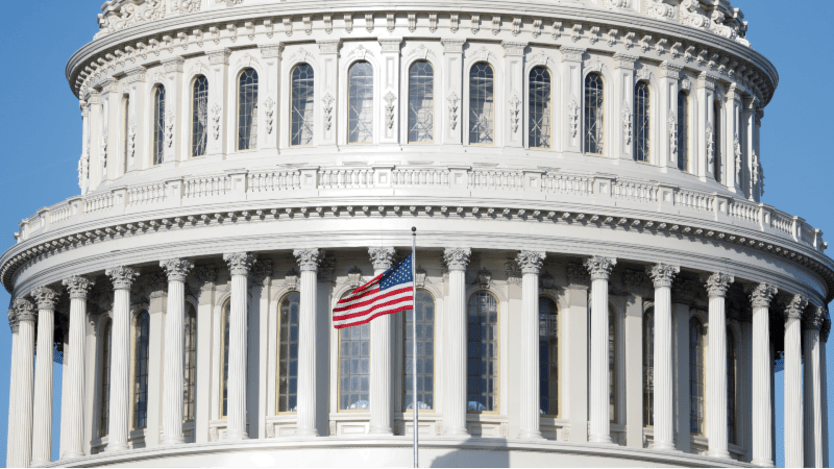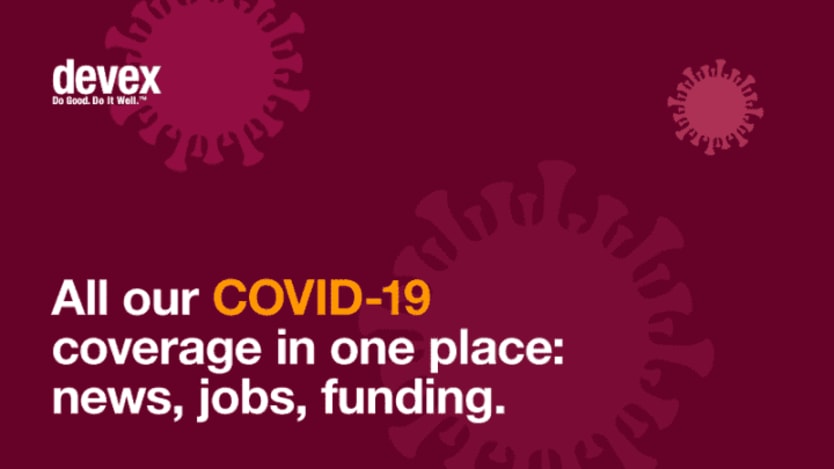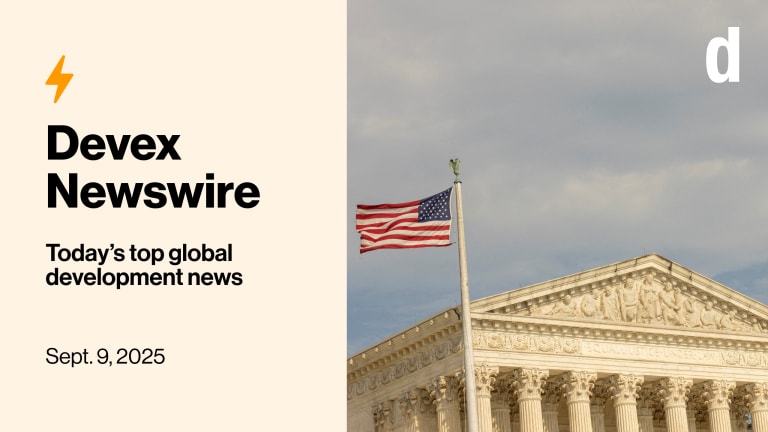
WASHINGTON — Congressional Democrats are exploring how they might respond to protect the World Health Organization from the funding freeze President Donald Trump announced Tuesday, though they will likely face opposition from Republicans who have traditionally been reliable advocates for foreign aid.
World calls Trump's funding freeze to WHO 'foolish', 'dangerous'
World leaders and influential global health figures condemn U.S. President Donald Trump's instructions to freeze funding to WHO amid the pandemic.
Some new details about what the halt in funding will look like emerged Wednesday — it will last for 60 days as the administration conducts a review of WHO, which is likely to be led by the State Department, several global health experts told Devex.
There are still questions about how much funding this pause will apply to, but the U.S. is the agency’s biggest donor, providing about $893 million in assessed and voluntary contributions for the current two-year budget period, according to Stephen Morrison, the director of the Global Health Policy Center at the Center for Strategic and International Studies.
It is unclear if WHO would be able to make up that budget shortfall and it would be felt far beyond the COVID-19 response — impacting other emergencies along with ongoing programs addressing diseases including polio and malaria, he said.
The administration will have to engage in some level of discussion with Congress if it decides to move forward with the freeze, but it does have “wide latitude” on spending and reprogramming funding, Morrison said.
“Blaming the WHO will accomplish nothing and cutting off resources will only make things worse.”
— Rep. Eliot Engel, chairman, House Foreign Affairs CommitteeThe reaction to Trump’s decision seems to have divided Capitol Hill along partisan lines. Democrats are saying Trump is trying to blame WHO for his failures in the COVID-19 response and highlighting the importance of the institution, just as Republicans either stay quiet or line up behind Trump.
Rep. Nancy Pelosi, the speaker of the House of Representatives, said the decision was senseless, dangerous, and illegal and said that it “will be swiftly challenged.”
It’s a bit unclear what that challenge would look like, and a House Democratic aide told Devex congressional leaders “are examining our options to challenge this decision, both on legal grounds and in future spending bills.”
One avenue that House Democrats are looking at is whether the decision violates the Congressional Budget and Impoundment Control Act, a part of which created procedures to prevent the president and other government officials from substituting their own funding decisions for those of Congress, a global health leader with knowledge of ongoing conversations told Devex. The leader requested anonymity to discuss information that was not yet public.
Early warnings from WHO on the dangers of COVID-19
Devex has pulled together a timeline documenting WHO's warnings of the coronavirus' severity in the initial months of the crisis.
A key piece of the current criticisms of WHO is the agency’s refusal to recognize Taiwan, at the insistence of China, which has been a long-running issue. Concerns about China and Taiwan are significant on Capitol Hill, which may also dampen some support, the global health leader said.
Several statements from lawmakers pointed out that WHO is imperfect and should be subject to some reforms, though most went on to say it didn’t make sense to cut funding to achieve those reforms, especially not in the middle of a crisis.
“No one doubts that the WHO — with a vital global mandate, total dependence on member states, and a budget about the size of a single American hospital — has performed imperfectly. And the foreign affairs committee will probe those issues among a host of others,” said Rep. Eliot Engel, the chairman of the House Foreign Affairs Committee. “Blaming the WHO will accomplish nothing and cutting off resources will only make things worse.”
WHO could have been more “forceful” with China and made the public health emergency of global concern declaration earlier, but that doesn’t mean it should have its funding cut, said Sen. Patrick Leahy, the ranking member of the Senate Foreign Relations Committee.
“It is performing an essential function and needs our strong support,” he said.
Republicans disagreed, including some who are often supportive of foreign aid budgets. Sen. Lindsay Graham, who is the chairman of the State and foreign operations appropriations subcommittee, said that the president's decision was the right move at this time.
“Until WHO changes its behavior and leadership, I think it’s in America’s best interest to withhold funding. They’ve been deceptive, they’ve been slow, they’ve been Chinese apologists — and they've failed miserably when it comes to #COVID19,” Graham tweeted.
“It’s unfortunate that political issues ... are now affecting a technical public health agency’s capacity to save lives.”
— Loyce Pace, executive director, Global Health CouncilWhile he said that “we need an effective WHO” in a Fox News interview, Graham said he would not fund the agency as long as Director-General Tedros Adhanom Ghebreyesus is in charge. “I’m going to be the ‘Doctor No’ when it comes to funding the WHO,” he said in the interview.
Rep. Mike McCaul, the ranking Republican on the House Foreign Affairs Committee, said in a statement that he was concerned by the poor leadership Tedros has shown during the outbreak and called for new leadership at WHO.
In the global health community, there is also an acknowledgement that WHO is imperfect and has made some mistakes. It is a weak institution that serves its member states and therefore has to be deferential to them, which means it is deferential to China, the U.S., and others, Morrison said.
The primary criticisms Trump has cited as the reason for the decision to cut funding include WHO’s opposition to imposing travel restrictions on China — a decision Trump made in January that he has repeatedly lauded himself for making. He also cited WHO’s delay in declaring a public health emergency of international concern, and an overreliance on China for information, Morrison said. Another key piece of the current criticisms is WHO’s refusal to recognize Taiwan.
“This was a decision fed by election-year politics,” he said. “The WHO suspension is part of striking a blow at multilaterals to appeal to his base, tying that it’s a co-conspirator with China.”
While there should be work to reform the agency, now is not the time to have that discussion, said Loyce Pace, the executive director at the Global Health Council. The move to cut funding is especially concerning because it comes just as the virus is hitting low-income countries hard — a time when more international support will be needed to help those countries weather that storm, she said.
“It’s unfortunate that political issues ... are now affecting a technical public health agency’s capacity to save lives. That’s what we’re up against here,” Pace said.
Update, April 16, 2020: This article has been updated to add the detailed amount of the U.S. contribution to the WHO.
Visit our dedicated COVID-19 page for news, job opportunities, and funding insights.









